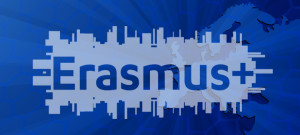MigrAID
Educating Social Partners Toward Ethnic Diversity in Small and Medium Sized Enterprises
For More Info See Project’s Website
Background information
The increasing flow of immigrants and refugees from third-countries to the EU, as well as the continuing internal migration of European citizens from one member state to another, have led to the ethnic diversity of the European workforce. According to a Eurofound report (Eurofound, 2015:1), immigration by non-EU nationals in 2015 represented half of the employment growth in the past five years. At the same time, in 2014 some 2.7% of the EU population resided in a Member State other than their country of origin (EY, 2014).
In this context, ethnic diversity management and migrants’ integration in the labour force constitutes a major challenge for the EU. There are continuing ethnic inequalities in the workforce and a lack of equality awareness by many employers and employees. Ethnic minorities and migrant employees are more vulnerable to discrimination (Kirton and Read, 2007:134). They have less access to training and learning opportunities and they are under-represented in decision-making positions in the trade-unions (ibid: 134). At the same time, cultural differences between employees and employers and/or between employees themselves may lead to communication difficulties between them, drawn from the lack of skills and awareness in regard to multi-culturism and diversity management.
Because of all these factors, ethnic diversity is a complicated challenge. The role of the trade unions and the employers’ organisations is critical. Trade unionists need to acquire specific skills and knowledge, and have equality awareness in order to meet the needs of all their members and have a fruitful contribution towards handling ethnic diversity and promoting migrants’ integration at workplace level. Employers’ organisations should have the relevant awareness, knowledge and skills in order to promote a diversity management agenda at the level of the enterprises. Both social partners need to acquire conflict resolution skills, have knowledge of the relevant legislation, of good practices and policies. The principle objective of this project is to address those needs by developing social partners’ knowledge and skills – particularly trade unionists and employers’ organisations – to manage ethnic diversity and promote migrants’ integration in the SMEs of five European countries; Cyprus, Greece, Italy, France, and Denmark
The team decided to focus on the SMEs due to certain characteristics they acquire. Importantly, the role of SMEs in the European economy and the total employment is decisive. In 2014, EU SMEs employed almost 90 million people which represent the 67% of total employment (European Union, 2015;3). Nevertheless, the literature in the field of industrial relations has given much greater weight on equality and diversity issues within large organisations rather than the SMEs (Kirton and Read, 2007: 132). However, the SME workforce consists of some of the most vulnerable and disadvantaged groups in the labour market, including an over-representation of ethnic minorities and migrant workers (ibid:132). At the same time, the legislation for equality is often notwithstandind in SMEs due to the informality and unitarism character of SME employee relations (Woodhams et al, 2004). Although this makes the role of social partners even more crucial, they often fail to successfully play that role because of the lower levels of trade union membership and organising by the employees of SMEs, compared to the larger organisations.
About the project
An innovative Erasmus+ project is running since October 1, 2016 entitled “Educating Social Partners towards Ethnic Diversity in SMEs” (MigrAID) in five EU Member States: Cyprus, Greece, Italy, France and Denmark. The project is funded under the Erasmus+ programme and the Foundation for the Management of European Lifelong Learning Programmes of Cyprus (IDEP).
This project addresses ethnic diversity in the workplace and implements particular research and educational programmes in the sector of Small and Medium Enterprises (SMEs) in order to facilitate the smooth integration of migrant workers. More specifically, the project curries out two innovative and interconnected research studies and it develops particular VET programs and training activities for both social partners and migrant communities. Ethnic diversity, inclusion, workplace diversity, inequality, discrimination and conflict resolution are themes highlighting all activities of the project. MigrAID ultimate aim is to strengthen the skills and competencies of trade unionists, employers and migrants. Through informal education, the project aspires to better prepare these aforementioned groups in dealing with the on-going challenges and demands of the labour market. Among the objectives of the project is the development of digital tools for learning, the construction of sectoral vocational educational training (VET) programmes, the raise of awareness of employers on ethnic diversity, the development of synergies of collaboration between institutions and individuals working on migration and the exchange of know-how and experiences.
Project Partners
The project is supported by Erasmus+ and is coordinated by the Cyprus Labour Institute (INEK-PEO) in partnership with seven other organizations as follows:
- Action for Equality, Support, Antiracism (KISA), Cyprus
- Institute of Labour of the General Confederation of Greek Workers (INE/GSEE), Greece
- Institute of the Hellenic Confederation of Professionals Craftsmen and Merchants AE (IME/GSEVEE), Greece
- Universita Delgi Studi di Milano (UMIL), Italy
- Enaip Veneto Impresa Sociale (ENAIP Veneto I.S.), Italy
- Iriv Conseil, France
- Videnscenter for Integration, Denmark


